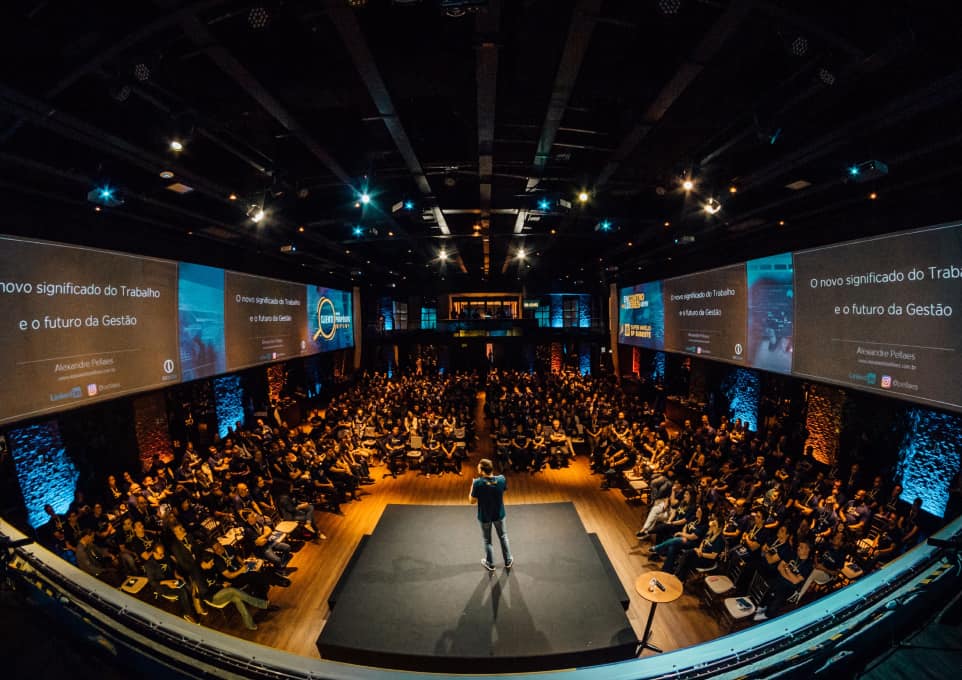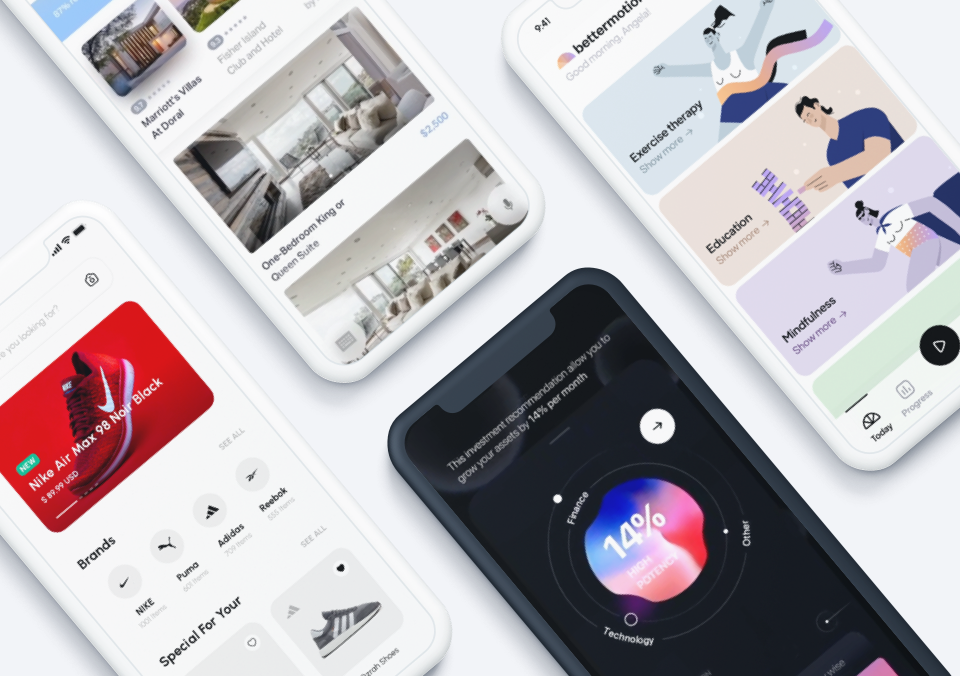You know you’ve got a solid business idea — you just don’t know how to get started as an entrepreneur.
It can be tough to figure out what that first step should be, or how to effectively market your business, or even just what to name it. Many entrepreneurs feel paralyzed by the number of decisions they have to make while they’re trying to get things off the ground.
One thing that often helps those who feel stuck is to read about inspiring entrepreneurs who’ve traveled the road before them. It helps to see how others have struggled, persevered, and forged their own path. Let’s take a look at five successful entrepreneurs and what they’ve learned over the years.
Beca Alexander of Socialyte
About a decade ago, Beca Alexander was eager to become an entrepreneur when she helped launch a blog called Fashion Indie. During the life of the blog, she was able to build an expansive network of brands and bloggers who were making a mark for themselves in an increasingly digital space.

When the blog started to trend downward, she picked up a corporate gig — but her entrepreneurial days weren’t over.
When Alexander built Fashion Indie, she frequently had to develop relationships with brands and other blogs — and those connections proved to be valuable assets. Companies began to reach out to her, asking how they could connect with other bloggers.
In the meantime, friends with blogs were asking for advice on how to put together proposals for brands that were reaching out to them.
She spent her nights and weekends negotiating on behalf of brands and bloggers while taking a small cut for her services. More and more opportunities flooded her inbox, including those from brands looking for advice on strategy. It took her a while to realize she’d basically started a company — she just needed to formalize it.
So in 2012, she quit her corporate job, signed three bloggers and three brands, and founded Socialyte in her apartment. Now, she has a 20-person team (consisting mostly of women) and works with major brands on developing an influencer marketing strategy, meaning that she targets people with influence over a target audience, rather than the target audience itself.
Their client list includes major brands such as Tiffany & Co., The Ritz Carlton, Veuve Clicquot, Audi, Target, Chanel, and many more — all by pairing brands with influencers in desired industries.
The Lesson: Learn Along the Way
Alexander admits she didn’t know much about digital marketing, how to start her own business, or even how to run a business when she started Socialyte. Many entrepreneurs start a business with some sort of knowledge of their industry and how they want to disrupt it. There’s usually a pain point they want to address.
But “Influencer Marketing” didn’t exist when Alexander started her business — and she certainly didn’t think it would become an entire industry. So she learned what she needed to when she had to know it.
In a nutshell, this is how you get started as an entrepreneur. You have an idea based on your skill set, and you figure things out from there. If it sounds simple, it’s because it is. The practice itself is difficult, but getting started isn’t as complicated as it’s sometimes made out to be.

Lori Cheek of Cheekd
Lori Cheek is an architect by trade. She’d been working in furniture, design — and yes, architecture — for 15 years when she got an idea for a new business that had little to do with her established career path.
She wanted to take the concept of dating apps and combine them with hyper-locality by using Bluetooth to pair people up. She wanted to completely remove the “missed” part of “missed connections.”
As terrifying as it was to make that leap, she was ready to start her own business. So in 2010, she made a career shift — instead of building structures, she started building relationships through her mobile dating app called Cheekd.
The Lesson: Be Prepared for a Journey — And Follow Your Instincts
Cheek knows as well as anyone how difficult it is to become a successful entrepreneur. She entered an already competitive space — online dating — which has managed to become increasingly crowded during the life of her business. But for her, the challenge is part of the appeal of owning your own business.
“Eight years into the entrepreneurial hustle, I’ve learned that entrepreneurship is being on a mission where nothing can stop you. It will take twice as long as you’d hoped, cost exceedingly more than you’d ever budgeted and will be more challenging than anything you’ll ever try, but if you give it your all and refuse to give up, you can trust it will be the ride of a lifetime.”
It can seem overwhelming (to say the least) to get started running your own business, but there isn’t a single successful entrepreneur that won’t say the same thing Cheek does: “No matter what… this has been the most rewarding journey of my life, and in the end, I’m going to have a magical story to tell.” Her advice for those wondering how to become an entrepreneur is “to be brave and follow your instincts.”
Shaun Walker of HEROfarm
In 2008, Shaun Walker was working at an advertising firm in New Orleans with his friend Reid Stone. It was still the early days of what would become one of the worst economic recessions in American history — while the banks had yet to fail, blood was in the water.
According to Walker, “The advertising world is usually a good prognosticator to the health of the economy.” They could see the writing on the wall. He and Stone knew it was only a matter of time before they lost their jobs, along with many of their coworkers.
“There’s nothing quite like having your industry collapse around you to make you evaluate the future.” Faced with being unemployed at a time when almost no one was hiring, they had a decision to make. They could either “begin the scratching and clawing [of] interviewing at the few, still profitable agencies, or [we could] create an opportunity — and that’s what we did.”
They’ll admit they began HEROfarm out of necessity — not that they hadn’t considered striking out on their own, but suddenly their “what ifs” turned into “what nows.” Walker and Reid focused on marketing and public relations for their new firm, even though they were both unsure if it would pan out. A decade in, however, and they’re still going strong.
The Lesson: Do Good
Walker was born and raised in New Orleans but attended college in Mississippi. After seeing the devastation Hurricane Katrina left in its wake, he returned to help rebuild his hometown — a sentiment and a mission near and dear to both founders’ hearts. One they wanted to weave into the fabric of their business.
As such, they believe giving back to the community should be an important part of any business. A good way to do so is to join forces with organizations and charities that actively work to improve the community.
Furthermore, getting your employees involved is a way to “convert your business from just another workplace into something others become truly invested in and want to see succeed. It also tends to make the work more worthwhile knowing you are a part of something larger than yourself that is improving the world.”
Julia Enthoven of Kapwing
Until last summer, Julia Enthoven was working for Google in what she describes as a “comfortable job with a six-figure salary.” While that might sound like the perfect life for some, anyone with a bit of entrepreneurial spirit bubbling within them knows they’ll never be happy unless they can strike out on their own.
When the entrepreneur bug bites, you simply have to run with it.
So she left to start her own business with a friend from Google, Eric Lu. They named it Kapwing, in part because Bill Watterson used this onomatopoeia in Calvin and Hobbes — an inspiration to both of them. Their goal was to help amateur video editors (such as themselves, with very little experience with professional video editing software) create fun videos. So that’s what Kapwing is: an online video editor.
Enthoven is proud of what they’ve accomplished thus far, and they’re just getting started. “Last summer it was nothing, and we built it entirely from scratch.” And even though their company is still young, they have a half-million users who’ve created over one million videos to date. Kapwing is already bringing in revenue, and they just secured their second round of seed funding. Not too shabby for two people in their mid-twenties, right?

The Lesson: Just Make Decisions
Some entrepreneurs struggle with decision-making — especially if they’re starting their first business and have never shouldered such responsibility before. Again, there’s that issue of enormity paralysis. But for Enthoven, she believes Google helped her get a jumpstart in this area: “Before I worked at Google, I was more hesitant and cautious when making decisions or taking risks in new areas.”
Obviously, not everyone will work for Google, or an environment that helps them learn how to make good decisions — or even just quick decisions. However, most successful entrepreneurs (like Alexander, above) will tell you the best way to learn is to simply do. You just have to figure it out as you go. Like Enthoven says, “The wrong decision is better than no decision at all.”
Chris Lesner of Project World Impact
Chris Lesner was bitten by the entrepreneur bug early on. When he was in middle school, he told his dad he didn’t want to work for some huge corporation — he wanted to be his own boss.
So in college, when friends of his were starting a marketing firm, he was happy to jump in. The business did very well, very quickly. As graduation approached, the marketing firm, he’d helped build offered him a six-figure salary and stock options. Most people would probably stick with a job like that, but Lesner knew it wasn’t right for him.
Instead, he turned the job down and focused on something else that spoke to him: cause work. “After doing some extensive research, I realized that there were 130 million people every month looking up information about any number of countries and causes in the world, and there wasn’t a good place to go to find that information.” That’s where he came up with the idea for Project World Impact (PWI).
PWI is a nonprofit hub that functions as a platform for nonprofits to connect with an audience of five million cause-minded people. They even offer opportunities to take advantage of cutting-edge technology through digital tools, either for free or at a low cost.
The Lesson: Don’t Outsource the Critical Components
Lesner had website troubles early on — he actually uses the word “failure.” As the entire point of the business was to organize cause-based nonprofits and connect them with potential donors, having a functional website was a pretty big deal.

“We contracted with three different web development companies to build the hub, all of whom defaulted on the development with no deliverables. Combine that with about 40 interns and employees that we hired and paid over two years to contact nonprofits, we lost a significant amount of money in those beginning years — well over $500k.”
So for Lesner, this was an important lesson learned: when it’s a critical component of your business, it may be a good idea to keep the work internal. Instead of hiring yet another external developer, they hired highly recommended developers in-house — people they could assure would fit in with the culture of PWI and have their best interests at heart.
Every entrepreneur will have to decide which components are most critical when they’re starting their own business, and if they learn from Lesner’s mistake, they’ll be sure to keep that one in-house.
How to Start Your Own Business with Mobile App Prototyping
If you’re trying to get your business off the ground and a mobile app is part of your plans, you should definitely include mobile app prototyping in the process. Prototyping seamlessly connects the design and development phases and can fit into every stage of your product lifecycle.
Mobile app prototyping is like a secret weapon (that shouldn’t be a secret at all). It can help aspiring entrepreneurs become successful ones by cutting down on development costs and saving copious amounts of time and hassle by fixing bugs early on. It’s the perfect way to invest in your company and improve your mobile app — all without breaking the bank.
How did you get started as an entrepreneur? What do you think has contributed most to your success? Let us know by tweeting us @Protoio!
Proto.io lets anyone build mobile app prototypes that feel real. No coding or design skills required. Bring your ideas to life quickly! Sign up for a free 15-day trial of Proto.io today and get started on your next mobile app design.







